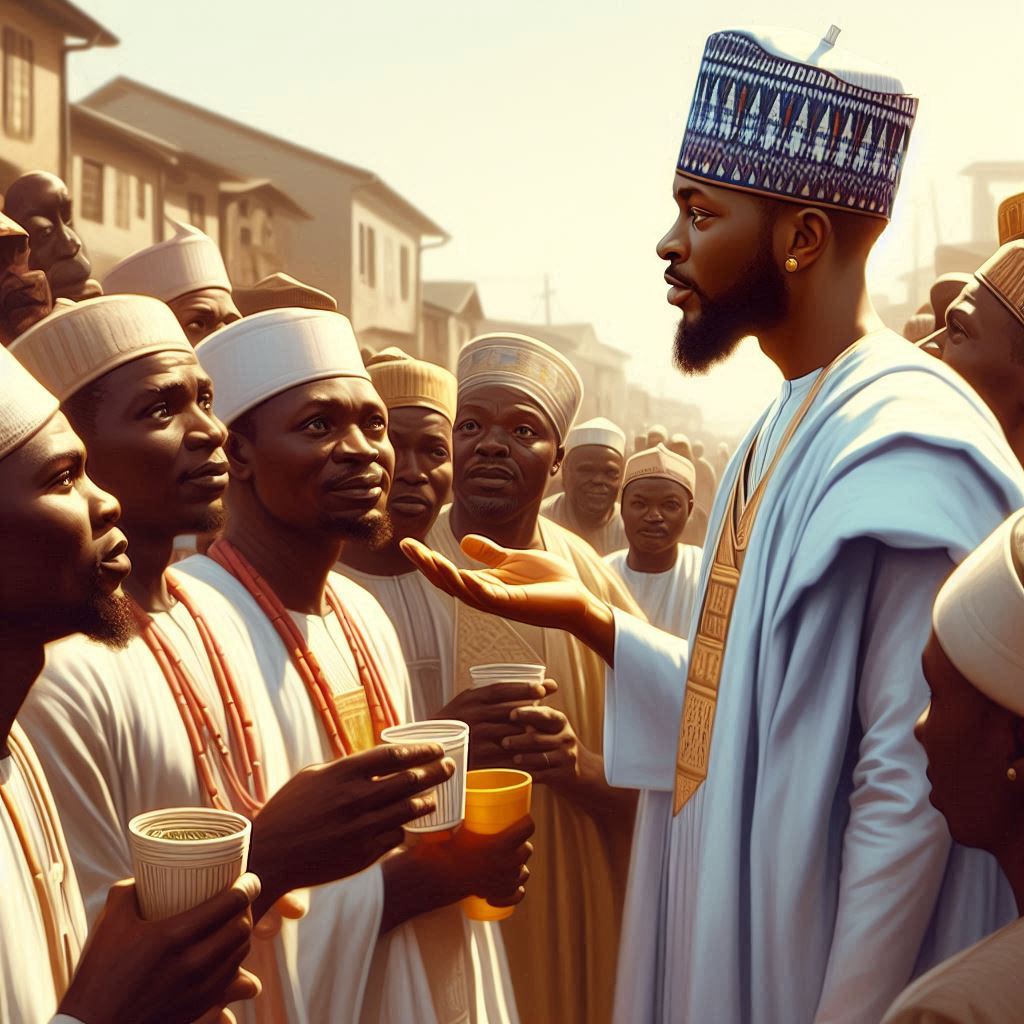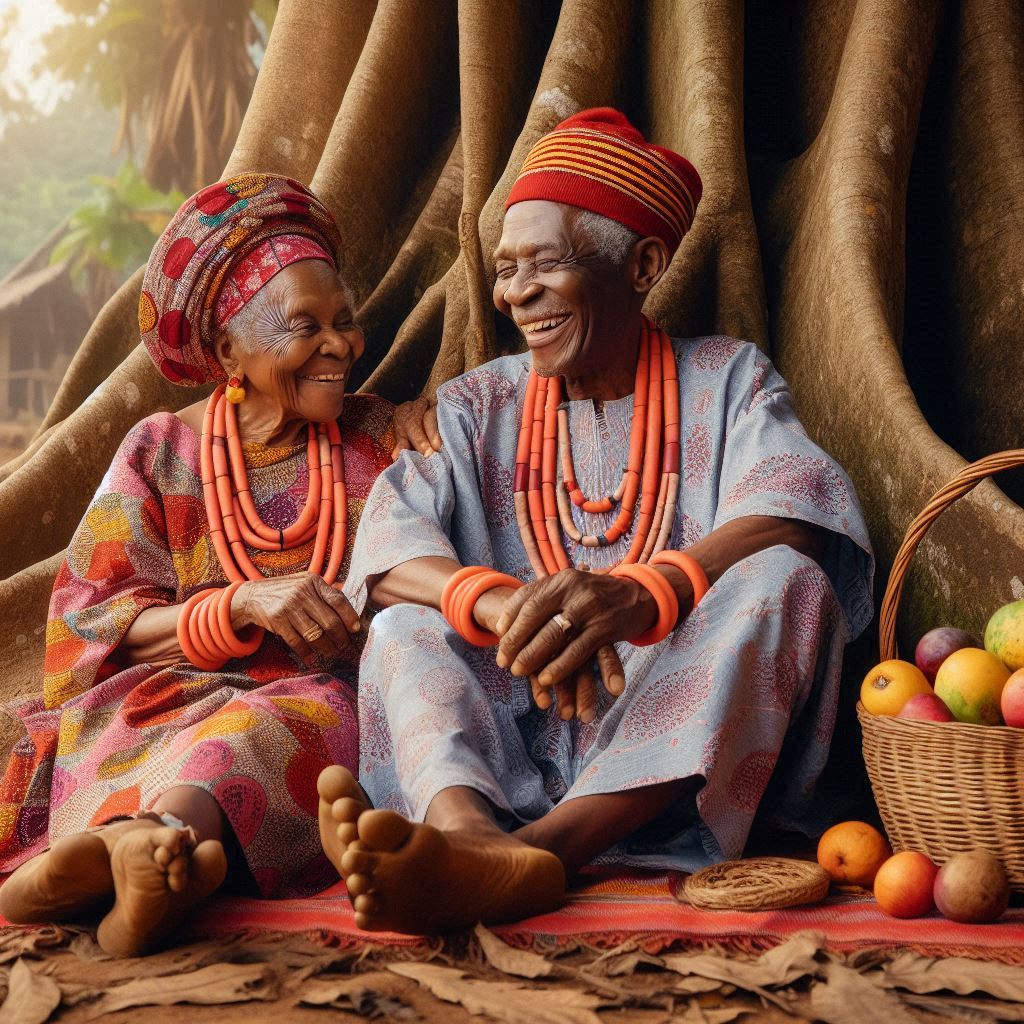Introduction
Nigerian languages reflect the country’s rich cultural and ethnic diversity. Nigeria is home to over 500 languages, each with unique features. Understanding these languages provides insights into the nation’s history, culture, and identity.
Nigeria’s linguistic landscape is complex and fascinating. The three major language families are Niger-Congo, Afro-Asiatic, and Nilo-Saharan.
Yoruba, Igbo, and Hausa are the most widely spoken languages. Each major language has numerous dialects, reflecting Nigeria’s diverse cultural heritage.
Yoruba
Yoruba is spoken predominantly in southwestern Nigeria. It has several dialects, including Egba, Ekiti, and Ijebu. Each dialect has distinct phonetic and lexical features.
Igbo
Igbo is the primary language of southeastern Nigeria. It encompasses dialects such as Owerri, Onitsha, and Ngwa. These dialects exhibit significant variations in tone and vocabulary.
Hausa
Hausa is spoken mainly in northern Nigeria and serves as a lingua franca. It includes dialects like Kano, Katsina, and Sokoto. The dialects show variations in pronunciation and vocabulary.
Other Languages
Beyond the major languages, Nigeria hosts many others, such as Fulfulde, Kanuri, and Tiv. Each language contributes to Nigeria’s rich linguistic tapestry.
Importance of Understanding Regional Variations and Dialects
Cultural Identity
Regional variations and dialects are crucial for preserving cultural identity. They connect people to their heritage and ancestors. Understanding these variations fosters a sense of belonging and pride.
Communication
Effective communication requires understanding regional dialects. It ensures accurate information exchange and reduces misunderstandings. This is particularly important in a multilingual society like Nigeria.
Education
Educators must recognize linguistic diversity to create inclusive curriculums. Teaching in local dialects can enhance learning and comprehension. It respects students’ linguistic backgrounds and improves educational outcomes.
Social Cohesion
Language plays a vital role in social cohesion. Understanding different dialects promotes unity and reduces ethnic tensions. It encourages mutual respect and appreciation among diverse groups.
Economic Development
Language proficiency can drive economic development. It facilitates trade, negotiations, and business relations. Understanding regional dialects opens up new market opportunities and fosters economic growth.
Preservation of Heritage
Languages are vessels of cultural heritage. Documenting and studying dialects help preserve traditions and knowledge. It ensures that future generations can access and appreciate their linguistic heritage.
In general, Nigeria’s linguistic diversity is a national treasure. Understanding regional variations and dialects enriches cultural knowledge and fosters unity.
It is essential for effective communication, education, social cohesion, economic development, and heritage preservation. Embracing this diversity strengthens Nigeria’s identity and promotes national progress.
Overview of Nigerian Languages
Nigeria, a culturally diverse country, boasts a rich tapestry of languages. Each language reflects the unique heritage of its speakers. The linguistic diversity is a testament to Nigeria’s complex historical and cultural landscape.
Language in Nigeria is more than a means of communication; it embodies identity, tradition, and history.
Over 500 Languages Spoken in Nigeria
Nigeria is home to over 500 languages. This vast number places Nigeria among the most linguistically diverse nations in the world. Each language represents a distinct ethnic group with its own customs and traditions.
The languages are spoken across the country, with some having millions of speakers and others only a few thousand. This diversity highlights the country’s rich cultural mosaic.
Major Language Families
Niger-Congo Family
The Niger-Congo family is the largest language family in Nigeria. It includes Yoruba, Igbo, and many other languages. Yoruba, spoken mainly in southwestern Nigeria, is known for its rich oral literature.
Igbo, predominant in the southeastern region, has numerous dialects but a standardized written form. These languages are not just means of communication but carriers of cultural values and traditions.
Afro-Asiatic Family
The Afro-Asiatic family includes languages like Hausa, spoken widely in northern Nigeria. Hausa serves as a lingua franca in West Africa, facilitating communication across diverse linguistic groups.
It is also an important language of trade and commerce. The Afro-Asiatic languages in Nigeria reflect the historical interactions with peoples from the Sahara and beyond.
Nilo-Saharan Family
The Nilo-Saharan family, though less prominent, includes languages spoken in the central and northeastern parts of Nigeria. These languages are part of smaller ethnic groups, each contributing to Nigeria’s cultural richness.
The speakers of Nilo-Saharan languages often inhabit regions with distinct geographical features, influencing their unique cultural practices.
Regional Variations and Dialects
Yoruba Dialects
Yoruba has numerous dialects, such as Egba, Ijebu, and Ondo. Each dialect is unique but mutually intelligible. The variations reflect historical and social developments within the Yoruba-speaking regions.
Despite these differences, a standard form of Yoruba exists, used in education and media.
Igbo Dialects
Igbo boasts a vast array of dialects, including Enugu, Anambra, and Owerri. These dialects can sometimes be so distinct that speakers from different regions might struggle to understand each other.
However, a standardized Igbo, used in schools and official contexts, bridges these differences.
Hausa Dialects
Hausa dialects include Kano, Sokoto, and Katsina. These dialects are generally mutually intelligible. Hausa’s status as a major trade language has helped maintain its uniformity.
The dialectical variations mainly reflect the different historical and cultural experiences of the regions.
In essence, Nigeria’s linguistic landscape is a vibrant and dynamic part of its national identity. The over 500 languages spoken across the country illustrate the rich cultural diversity of its people.
Understanding the major language families and regional dialects offers insights into Nigeria’s complex and fascinating cultural heritage.
This linguistic diversity is a valuable asset, contributing to the country’s unique position in the global cultural mosaic.
Read: Psychological Impact of COVID-19 on Nigerians
Regional Variations in Nigerian Languages
Nigeria boasts a rich linguistic landscape, with diverse languages reflecting its multifaceted cultural heritage. Regional variations play a pivotal role in shaping these languages, showcasing unique dialects and linguistic nuances across geographical regions.
Influence of Geographical Regions
Geographical factors exert a profound influence on the development of languages in Nigeria. From the lush forests of the South to the arid landscapes of the North, each region leaves its imprint on the linguistic tapestry of the country.
The topography, climate, and historical interactions with neighboring communities contribute to the evolution of distinct language variations.
For instance, coastal regions may incorporate vocabulary related to fishing and maritime activities, while communities in the savannahs might have terms specific to agriculture and livestock.
Examples of Major Language Groups
In the Southwest region, Yoruba stands as one of the prominent language groups. Spoken by millions, Yoruba exhibits variations across states like Lagos, Oyo, and Ogun, reflecting local customs and traditions.
The Hausa language dominates the Northern region, with its influence stretching across vast territories. Hausa dialects differ between urban centers like Kano and rural areas, reflecting urbanization and cultural dynamics.
In the Eastern region, Igbo serves as a dominant language group, characterized by its melodic tones and intricate grammatical structures.
Variations in Igbo dialects can be observed between states like Enugu, Anambra, and Abia, reflecting historical migrations and regional identities.
Factors Shaping Regional Variations
Several factors contribute to the divergence of languages within regions. Historical migrations, trade networks, and colonial influences have all played significant roles in shaping linguistic diversity.
Colonial legacies, such as the imposition of English as the official language, have led to the integration of English vocabulary into indigenous languages, creating hybrid forms known as pidgin or creole languages.
Additionally, socioeconomic factors like urbanization and globalization have spurred language convergence in urban centers, leading to the emergence of urban dialects influenced by multiple linguistic traditions.
Preservation and Revitalization Efforts
Despite the prevalence of regional variations, efforts to preserve and revitalize indigenous languages are gaining momentum. Government initiatives, educational programs, and grassroots movements aim to promote linguistic diversity and cultural heritage.
Through initiatives like language documentation, community-based language projects, and cultural festivals, stakeholders strive to safeguard Nigeria’s linguistic heritage for future generations.
In a nutshell, regional variations in Nigerian languages underscore the country’s rich cultural mosaic and historical legacy.
Understanding the dynamics of language diversity enhances appreciation for Nigeria’s linguistic heritage and fosters unity amidst diversity.
Read: Psychology and Counseling Services in Nigerian Schools
Dialects within Nigerian languages
When it comes to Nigerian languages, dialects play a significant role in showcasing the diversity and richness of the country’s linguistic landscape.
In Nigeria, there are over 500 languages spoken, each with its own set of dialects that vary across regions and communities.
Explanation of dialects as variations within a language
Dialects are essentially variations of a language that are specific to a particular region, group, or community. These variations can manifest in terms of pronunciation, vocabulary, grammar, and even cultural influences.
Within Nigerian languages, dialects serve as markers of identity and belonging for different groups.
For example, the Igbo language spoken in southeastern Nigeria has various dialects such as the Enuani, Orlu, and Ngwa dialects, each with its unique linguistic features.
Similarly, the Yoruba language spoken in southwestern Nigeria has dialectal variations including the Ijebu, Egba, and Oyo dialects.
These dialectal variations within Nigerian languages are often influenced by historical, geographical, and social factors.
The migration of people, interactions with neighboring communities, and the presence of distinct cultural practices can all contribute to the development of unique dialects within a language.
Transform Your Career with Expert Guidance
Get personalized mentorship consulting that’s tailored to your unique path. Our expert advice is actionable and exclusive.
Get StartedImportance of recognizing and preserving dialectal diversity
Recognizing and preserving dialectal diversity within Nigerian languages is crucial for maintaining the cultural heritage and linguistic richness of the country.
Each dialect offers a glimpse into the history, traditions, and identity of a particular community, highlighting the unique aspects of their language and culture.
Preserving dialectal diversity also helps to foster a sense of inclusivity and unity among different ethnic groups in Nigeria.
By acknowledging and celebrating the variations within Nigerian languages, we can promote cultural understanding, respect, and appreciation for the diverse linguistic traditions that exist in the country.
Furthermore, the preservation of dialectal diversity within Nigerian languages ensures that future generations have access to the full range of linguistic expressions and cultural nuances that make up the country’s cultural tapestry.
By safeguarding dialectal variations, we can protect and promote the heritage of each community and uphold the values of diversity and inclusion.
In review, dialects within Nigerian languages offer a unique insight into the country’s linguistic diversity and cultural heritage.
By recognizing and preserving dialectal diversity, we not only celebrate the rich tapestry of Nigerian languages but also promote unity, understanding, and respect among different ethnic groups in the country.
Read: Understanding Mental Health Laws in Nigeria

Factors Influencing Language Variations
Nigerian languages exhibit diverse variations due to several influential factors shaping linguistic landscapes.
Historical Influences
Colonization played a pivotal role in shaping Nigerian languages, introducing new lexicons and altering grammatical structures.
Migration also contributed to language variations, as diverse groups settled in different regions, bringing their linguistic nuances.
Cultural Influences
Traditions deeply embedded in Nigerian cultures influence language, shaping vocabulary, idioms, and expressions unique to each ethnic group.
Interactions with other ethnic groups foster language exchange, leading to the incorporation of loanwords and syntactic influences.
Colonization: A Linguistic Impact
During colonization, European powers imposed their languages, leading to the adoption of English as Nigeria’s official language.
Indigenous languages adapted to colonial rule, incorporating English words and structures, resulting in creolization and pidginization.
Migration and Linguistic Diversity
Internal migration within Nigeria led to the spread of languages, creating pockets of linguistic diversity across regions.
Migration also facilitated language contact, influencing phonological, morphological, and syntactic features of Nigerian languages.
Cultural Traditions and Language Preservation
Cultural practices, rituals, and ceremonies are intrinsic to Nigerian languages, preserving linguistic heritage through oral traditions.
Each ethnic group’s cultural identity is intricately linked to its language, reinforcing the importance of language preservation efforts.
Interactions with Other Ethnic Groups
Interethnic interactions foster linguistic exchange, leading to the adoption of words and expressions from neighboring languages.
Trade, intermarriage, and cultural events serve as avenues for language diffusion, enriching the linguistic tapestry of Nigeria.
Challenges and Opportunities
Despite the richness of Nigerian languages, they face challenges such as language endangerment due to globalization and urbanization.
Efforts to revitalize indigenous languages through education, media, and cultural programs present opportunities for language preservation.
In fact, The linguistic landscape of Nigeria is a testament to the country’s rich cultural heritage and diverse historical influences.
Understanding the factors influencing language variations is crucial for preserving and celebrating Nigeria’s linguistic diversity.
Read: Impact of Christian Religious Studies on Nigerian Society
Challenges of Language Preservation
Preserving Nigerian languages presents multifaceted challenges in the face of modernization. Urbanization, globalization, and educational systems favor dominant languages, marginalizing indigenous ones.
Government policies often prioritize national languages over regional ones, hindering efforts to preserve linguistic diversity. Economic disparities contribute to limited resources for language preservation initiatives.
Rapid technological advancements pose challenges to traditional oral language transmission methods. Younger generations, immersed in digital culture, may find little incentive to learn their ancestral languages.
Threats to Minority Languages and Dialects
Minority languages and dialects face existential threats due to a lack of intergenerational transmission. Urban migration leads to linguistic assimilation, as speakers adopt dominant languages for social and economic integration.
Globalization accelerates language shift by promoting the use of widely spoken languages in media, commerce, and education. Minority languages struggle to compete for relevance and utility in modern contexts.
Inadequate recognition and support from government institutions further endanger minority languages. Without official status or institutional backing, these languages face marginalization and potential extinction.
Importance of Language Documentation and Revitalization Efforts
Language documentation plays a vital role in preserving linguistic diversity by capturing oral traditions, folklore, and cultural nuances. Linguists collaborate with native speakers to record and archive endangered languages.
Revitalization efforts aim to reclaim pride in indigenous languages and promote their usage in daily life. Community-based initiatives, such as language immersion programs and cultural events, foster language revitalization.
Digital platforms offer innovative tools for language revitalization, enabling online learning resources, interactive apps, and virtual communities for language enthusiasts. Social media provides platforms for language advocacy and grassroots organizing.
Collaboration between government agencies, educational institutions, and grassroots organizations is essential for comprehensive language revitalization strategies. Policies supporting bilingual education and cultural preservation can empower minority language communities.
Basically, preserving Nigerian languages requires concerted efforts to address challenges such as urbanization, globalization, and institutional neglect.
By documenting, revitalizing, and promoting indigenous languages, Nigeria can safeguard its linguistic heritage and foster cultural diversity.
Benefits of Understanding Regional Variations and Dialects
Understanding regional variations and dialects in Nigerian languages is not just beneficial, but crucial for various reasons.
Facilitation of communication and cultural exchange
Understanding the regional variations and dialects of Nigerian languages helps in effective communication between people from different parts of the country.
It allows for a deeper understanding of the cultural nuances and practices specific to each region.
By grasping these variations, individuals can engage in more meaningful conversations and bridge cultural divides.
Preservation of linguistic diversity and heritage
Each region in Nigeria has its own unique language variations and dialects that reflect its history, traditions, and customs.
By understanding and preserving these linguistic differences, we ensure that the rich heritage of Nigerian languages is passed down to future generations.
It helps in maintaining the cultural identity of each region and prevents the loss of indigenous languages.
Promoting unity and diversity
Understanding regional variations and dialects fosters a sense of unity among Nigerians by appreciating the diversity of languages spoken across the country.
It highlights the importance of respecting and celebrating linguistic differences as part of Nigeria’s cultural tapestry.
By acknowledging and valuing these variations, we strengthen national cohesion and promote inclusivity.
Enhancing educational opportunities
Knowledge of regional variations and dialects in Nigerian languages can enhance educational opportunities for students and researchers.
It allows for a deeper exploration of language structures, phonetics, and sociolinguistic aspects across different regions.
Researchers can conduct valuable studies on language evolution, dialectology, and language revitalization efforts.
Encouraging cultural exchange and collaboration
Understanding regional variations and dialects creates opportunities for cultural exchange and collaboration between communities in Nigeria.
It encourages the sharing of linguistic resources, storytelling traditions, and oral histories among different language groups.
This exchange promotes cross-cultural understanding, mutual respect, and appreciation for the diverse linguistic landscape of Nigeria.
Empowering local communities
By understanding regional variations and dialects, individuals can empower local communities to preserve and promote their indigenous languages.
It opens up doors for language revitalization programs, literacy campaigns, and cultural initiatives that support community development.
By valuing and preserving linguistic diversity, we empower marginalized communities and ensure their voices are heard and represented.
Overall, the benefits of understanding regional variations and dialects in Nigerian languages are far-reaching and essential for fostering communication, preserving heritage, promoting unity, and empowering local communities.
Conclusion
In exploring Nigerian languages, we’ve uncovered a tapestry of regional variations and diverse dialects. Each holds a unique cultural significance, reflecting the rich heritage of Nigeria.
Recap of the Significance of Nigerian Languages
Nigeria, with its over 500 languages, stands as a linguistic marvel, showcasing the country’s rich diversity. From Hausa in the North to Yoruba in the West and Igbo in the East, these languages serve as pillars of identity, preserving traditions and histories.
In a nation as culturally vibrant as Nigeria, languages are more than just a means of communication; they are repositories of cultural heritage.
They encapsulate the stories, beliefs, and values passed down through generations.
Despite the colonial legacy of English, Nigerian languages continue to thrive, resilient in the face of globalization. They foster a sense of belonging and unity among communities, serving as symbols of cultural pride and resilience.
The regional variations and dialects within Nigerian languages exemplify the dynamic nature of culture, constantly evolving yet firmly rooted in tradition.
These linguistic nuances enrich the tapestry of Nigerian identity, highlighting the country’s multicultural essence.
Call to Appreciate and Embrace the Linguistic Richness of Nigeria
As we conclude our exploration of Nigerian languages, let us pause to appreciate and embrace their linguistic richness.
Let us recognize the importance of preserving and promoting indigenous languages as integral parts of our national heritage.
Embracing Nigerian languages means more than just linguistic diversity; it signifies a commitment to cultural preservation and inclusivity.
It is a celebration of the unique identities woven into the fabric of our society, fostering mutual respect and understanding.
We call upon Nigerians to take pride in their linguistic heritage and actively participate in its preservation.
Whether through language revitalization efforts, education initiatives, or cultural exchanges, we all have a role to play in safeguarding our linguistic diversity.
In a globalized world where cultural homogenization looms large, Nigerian languages serve as beacons of cultural resilience.
They remind us of the beauty and complexity of our nation’s heritage, offering a window into the diverse tapestry of Nigerian identity.
Generally, let us cherish Nigerian languages as invaluable assets that connect us to our past, unite us in the present, and inspire us for the future.
Through embracing linguistic diversity, we strengthen the bonds of our nation and ensure a brighter, more inclusive tomorrow for all Nigerians.




